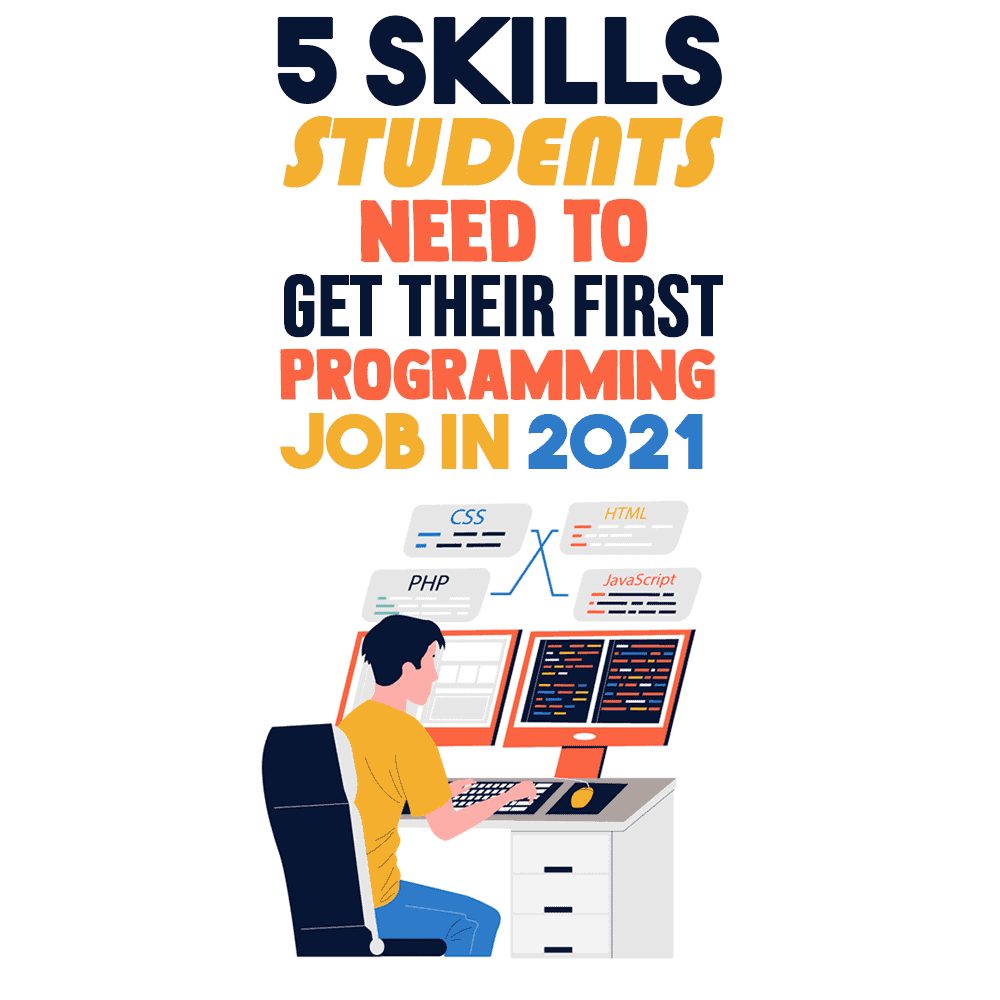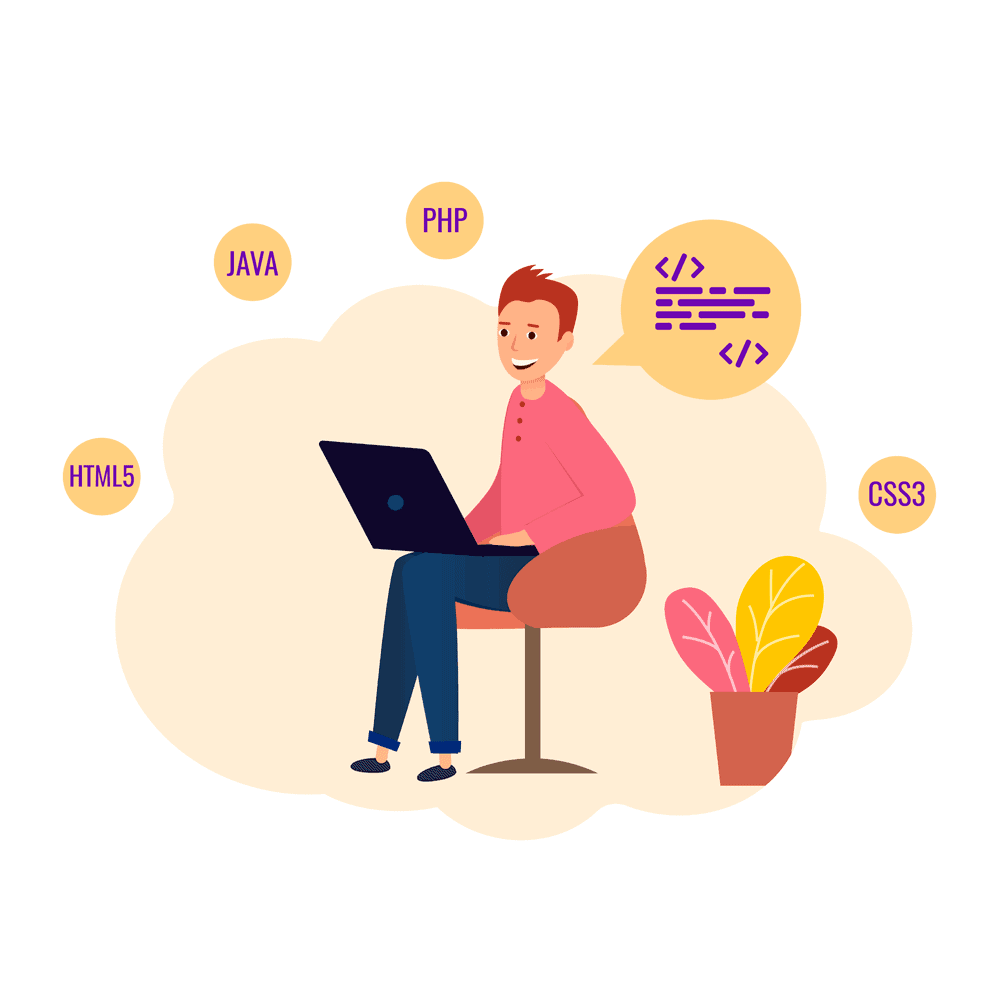 What skills do you need to land a programming job in 2021? Well, this is a tricky question to answer. In today’s world, programmers need more than just IT skills to survive in the job market.
What skills do you need to land a programming job in 2021? Well, this is a tricky question to answer. In today’s world, programmers need more than just IT skills to survive in the job market.
As a college student who new to the world of programming and has dreams of becoming a successful programmer, you will need a wide range of skills to help you perform optimally and carry out your job responsibilities. The best programmers often combine their software engineering skills with other soft skills, which helps them stay at the top of their game.
According to research carried out by Google, successful tech experts and developers have soft skills prevailing in their knowledge kit. This simply proves that modern companies are now looking for programmers who can offer more than just coding skills or STEM expertise. So, if you’re ready to become a gem in the software programming job market, read on about some of the most profitable skills to learn in 2021:
Develop communication skills
There is a popular stereotype of programmers who sit solo in a corner, working on their computers without saying a word to anyone. While this may be true in some cases, it doesn’t take away the fact that you need excellent communication skills to work on both simple and complex projects.
But how do you communicate with a team on a deep level? Well, to interact with people professionally, a great programmer should be able to have a clear understanding of problems and then propose viable solutions coherently. One way to ensure that you get an accurate perception of problems is by working on your listening skills. Having the ability to listen, you can easily grasp the issue that needs discussion and draw meaningful insights from it.
However, excellent communication skills don’t just end at listening and speaking. They also involve being able to read the room and knowing the appropriate time to suggest any solutions you may have.
To boost this skill, you could practice talking to other students in a clear and coherent manner. That is, your ideas should be easily understandable even by a layman. There’s no need to speak for hours or cram programming jargon in your sentences.
You could practice speaking up by actively participating in group presentations. Don’t be scared to take the front stage every now and then.
If you’re struggling with practicing in your physical classroom, there are tons of online communication courses you could take on Udemy or Coursera. Such courses let you dictate your own pace so you won’t have to worry about interference with college work.
Brush up on your mathematical skills
Let’s admit it: you probably skipped math class once or twice in high school. While this may not be a big deal in your personal life, it may pose a little problem if you’re trying to pursue a career in software programming.
Most niches in programming require a thorough understanding of basic Algebra and Arithmetic since programming is often considered as applied math. For instance, in basic programming, binary math is used to represent numbers in a computer. Similarly, linear Algebra is used for the transformation of matrices.
Even calculus problems pop up every now and then in machine learning, as the former is one of its major pillars. For instance, the concept of calculus is used in algorithms such as Stochastic Gradient Descent (SGD) and Gradient Descent algorithms.
If your mathematical skills are dismal, you may want to consider getting a tutor or visiting the world’s largest tutorial hub – YouTube (you can start by checking out the Simple Programmer YouTube channel!) Focus on Algebra and/or Calculus as these studies are the most relevant ones when it comes to programming.
Work on Problem-solving

Generally, code is often written to solve a particular problem. As a programmer, you will be required to identify problems and then come up with viable solutions. If you don’t have a passion for solving problems, you will most likely end up frustrated because, in some cases, you may need to develop multiple solutions for one problem.
To help boost your problem-solving skills, you could try practicing this way: search for a common programming problem (Topcoder is a great crowdsourcing company that offers challenging projects) and then come up with a solid plan to tackle it. You can come up with a strategy by studying the problem and brainstorming common solutions to similar issues. The way expert programmers tackled their problems will give you an insight into possible solutions.
Next, divide the problem into sub-problems (this process is called dynamic programming) and come up with sub-solutions. Once this is done, you can connect the dots and generate a solution for the original problem. For instance, if you’re trying to find the Longest Common Subsequence, you could break down this problem, make a flowchart, and then go on to practice pseudocode.
Improve your writing skills
This may come as a shocker to you (or not), but programmers have to be good writers as well. A professional writer is the one who can coherently discuss technical implementations and complex topics in written discourse. In addition to your IT skills, you’d also need to have a flair for writing in a way that ensures your message is passed across. As a programmer, you’d most likely find yourself doing a lot of technical writing. Hence, you should be able to explain complex concepts and processes in a non-technical way when documenting your work.
You may also find yourself in situations that require you to document or communicate your processes and results to people who may not have the same level of technical knowledge that you do. For instance, you may need to answer programming questions from less technical clients via emails or other communication channels. In such cases, it’s best to have a proper touch for words and be flexible in your expressions, depending on message recipients.
Have a Healthy Dose of Inquisitiveness
No one says you have to be a Curious George who annoys their team members. However, successful programmers with decent IT skills often have a healthy dose of inquisitiveness towards problems and solutions. For example, you should ask questions like: How does this line of code work? Why does action A solve the problem but action B doesn’t?
Even though curiosity kills the cat, it does the exact opposite for any software programmer. Therefore, inquisitiveness will help you learn new concepts faster and stand out from the crowd.
If you’re curious, this trait will fuel your desire to code and help you to dig deep into problems. Subsequently, you’d learn new concepts and solutions that you didn’t even know exist.
A great way to develop curiosity as a programmer is by constantly experimenting with coding projects and problems. These experiments will generate new questions for you to find answers to, and as such, ignite your curiosity.
List These Skills in Your Resume
Now that we’ve outlined the top skills that would land you a programming job in 2021, it’s important to learn how to list them in your CV. Doing this will make your resume stand out and definitely catch the eye of even the most impatient recruiter. But how exactly do you do this? Here’s how:
Add the ‘skills’ section
There are two major options you can choose from if you’re trying to figure out a way to list your skills. You may decide to create a separate skills section and then list out specific skills and qualifications. However, this option is more suitable for people who have had extensive experience in the field, and this brings us to the second option.
Alternatively, you could simply weave your skills into your professional experience section. This is an excellent option for budding programmers as it is the right way of stating that you have little professional experience.
Use examples
When listing your skills, it’s important to pad them with specific examples in order to provide additional context. For example, if you’re listing problem-solving skills, you should ‘seal’ your expertise with examples when you encountered a complicated coding problem and solved it using computational or critical thinking. This way, a recruiter will be assured you do have expertise in the field and can boast of more than just generic soft skills.
How To Improve Your Programming Skills

Read code
This is one of the most valuable hacks for honing and bettering your programming skills. Read code written by other programmers and set a challenge for yourself. When you read other programmers’ code, you get to see how they solved the problem and thus can figure out alternative routes through which you could have solved it.
You could also read articles, newsletters, and programming books such as The Clean Coder or Introduction to Algorithms to learn more about coding and problem-solving.
Write code
What is a better way to learn how to write code than by actually writing it? Working on personal programming projects offers you the opportunity to get first-hand knowledge and experience in the field.
With constant practice, your programming skills will improve.
Learn techniques rather than tools
Here’s one thing you should know about programming and technology in general: tools come and go. The coding tools you use now may become obsolete in the next few years.
As such, you should focus on learning the basic details of programming and getting practical advice instead of becoming overly reliant on tools. This way, you would not find it challenging to adapt to new programming apps and changes.
Network with other programmers
It certainly helps to cooperate and exchange ideas with other experts in your field, especially if you plan to pursue a programming career in the future. You could also try visiting hackathons or coding boot camps during semester breaks to network with other people like you.
At these boot camps, there’s a huge chance that you’d find an expert who can answer any questions you might have about professional coding. However, if you’re too choked with college work to visit a boot camp, you can join online coding communities and connect with other budding programmers to widen your scope of knowledge.
Kick-start Your Programming Career by Learning These Skills
If you’re trying to land a lucrative programmer job in 2021, you’ll need to be armed with the right skills and experience. You’ll need to work on your communication, writing, and problem-solving skills and improve your hard programming abilities by reading and writing code and learning new techniques.
The five skills listed in this article will not only look good on your computer programmer’s resume but will also land you a dream job. Good luck!
